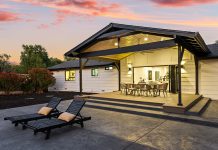I write this on March 1, Saint David’s Day. Saint David is to Wales as Saint Patrick is to Ireland. Saint David, Dewi Sant in the native tongue, was born about the year 500. Like Saint Patrick in Ireland 100 years earlier, Saint David established schools and monasteries in the westward protruding belly of Britain that is Wales.
Dining mostly on leeks and drinking nothing stronger than pure spring water, Saint David gained the strength to drive the English and the bears out of Wales, or so the story goes. He also inspired music and singing, and that tradition continues in grand gatherings called Gamanfa Ganus, festivals of song.
Whereas on Saint Patrick’s Day the Irish go to the pub and drink beer, on Saint David’s Day the Welsh go to church and sing hymns. Then they go to the pub and drink beer in spite of Saint David’s aversion to such beverages. I know about this from having served a parish on Welsh Hill in Scranton, Pennsylvania, in the early 1960s.
From 1850 on, some 300,000 Welsh immigrants, many close to starving in their homeland, and numerous Joneses among them, came to northeastern Pennsylvania to work in the anthracite mines. Anthracite is hard coal, the kind they have in Wales, the kind that burns the hottest and is good for making steel.
Over generations, working for scrip honored only in the company store, living in company houses and paying company rent, these miners blasted, picked and shoveled coal to produce steel girders for building our great cities and the tracks for the railroads that connect them. Many worked all their lives in the mines and died in debt with only a case of black lung to show for their contribution to America’s wealth and power.
Little “Breaker Boys,” eight or nine years old, worked 12-hour shifts picking slates and stones out of the coal as it roared by on its way to the tower to be shattered into usable pieces. They earned maybe 40 cents a day. A fellow with a long pole bonked them on the head if they began to nod off.
The mines worked round the clock six days a week, but in the summertime the mine owners gave their workers Saturday afternoon off for baseball games. Every mine had its team, and the competition was fierce.
Then on Sundays the Welsh went to church and sang their melodic hymns. They often sang in their native language, in minor keys, at times raising a wail that gave voice to hurts and longings that stretched all the way back to Wales.
In the midst of that fervent singing I could feel my Welshness. I sensed my forebears doing hard labor in the dark and dangerous mines. I sensed the power to endure that reverberated in their songs.
A few years ago, I visited Scranton’s Welsh Hill and found that the Hyde Park Presbyterian Church, the former heart of the Welsh community, is now Iglesia Christiana. Hispanic immigrants live where Welsh immigrants lived less than 50 years ago.
The coal mines are mostly shut down, but, like Welsh immigrants before them, these new immigrants do the hardest, lowest paying work to be had. And like the Welsh coal miners did, on Sundays they go to their church and sing hymns in their native language. I’m sure it helps them endure.
That visit made it crystal clear to me how immigrants working the hardest, least rewarding jobs always do more than their share to make our nation what it is.
Bob Jones is the former minister of the Guerneville and Monte Rio Community Church.









